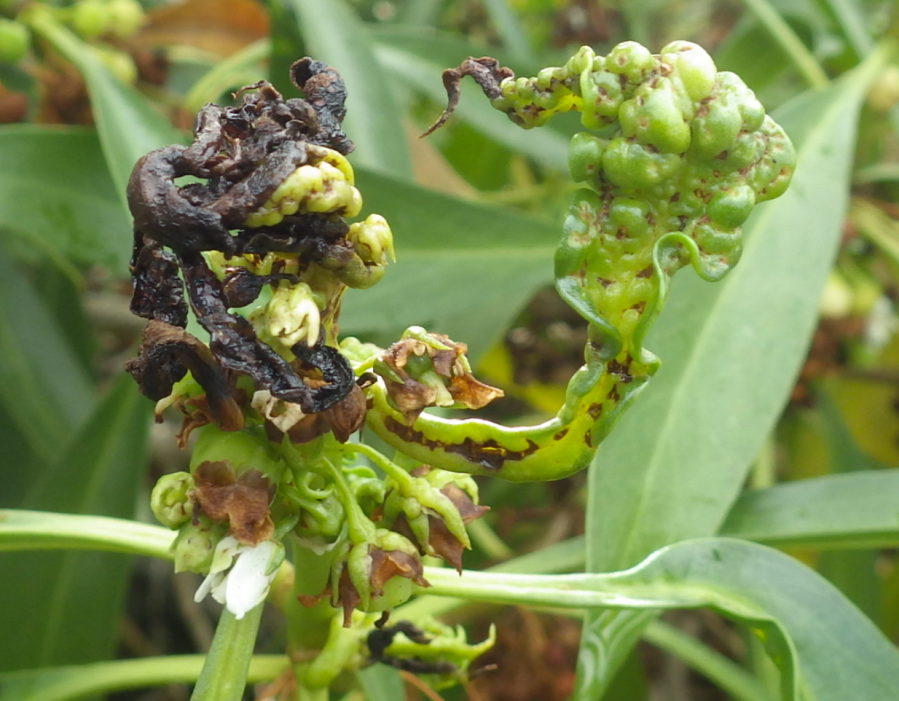HONOLULU (KHON2) — Native naio plants in Hawaiʻi are under attack from invasive insects. For the first time ever, Myoporum thrips have been found on Kauaʻi, reported the State.
“Myoporum thrips feed on Myoporum leaf tissue and cause leaf curl, scarring, deformation or abnormal growths that damage the naio and can potentially lead to its death,” said Rob Hauff, forest health coordinator for the Department of Land and Natural Resources’ Division of Forestry and Wildlife. “Naio plants with this kind of damage should be checked closely for small black insects.”
These invasive insects were reported in Kauaʻi earlier this month.
Thrips can be transported while shipping plants and equipment, as well as by “hitching a ride on humans,” officials said.
The DLNR’s Division of Forestry and Wildlife, Kauaʻi Invasive Species Committee and Hawaiʻi Department of Agriculture and Biosecurity are working together to manage the situation.



“An early detection and response plan was developed for Kauaʻi in 2013 by KISC, DOFAW, and HDAB. Having that plan in place helped the agencies respond quickly in this case, and partners are hopeful that the rapid response may lead to successful containment or even island-wide eradication,” Hauff said.
Residents will be crucial in this containment process.
“Help from Kauaʻi residents will be critical to ensuring the full infestation is discovered and treated,” Hauff said.
Island-wide surveys were collected on cultivated naio plants after the initial report, leading to the discovery of two additional infestation locations.
Wild naio populations across the island are currently being surveyed by the department.
In 2009, the insects were first discovered in the state on Hawaii Island, where they are now widespread. They have since also been discovered on Oʻahu in 2018 and, in 2024, on Molokaʻi.
Reports of damage or signs of thrips should be made immediately to 643pest.org.
